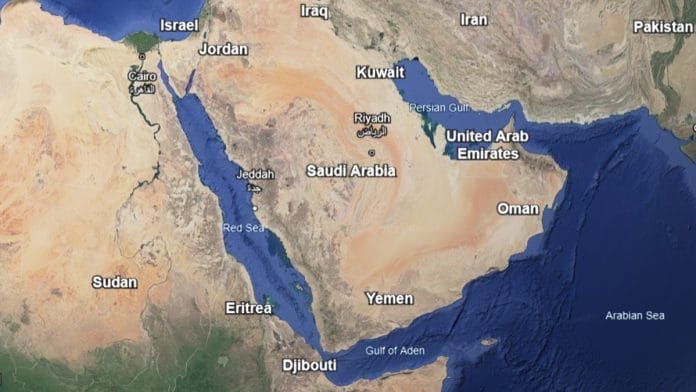Thank you dear subscribers, we are overwhelmed with your response.
Your Turn is a unique section from ThePrint featuring points of view from its subscribers. If you are a subscriber, have a point of view, please send it to us. If not, do subscribe here: https://theprint.in/subscribe/
Let us not go too far back in time. The history of the Levant, post-creation of Israel in 1948, has been as bloody and as multifaceted as it has ever been. It is so vicious and convoluted that any one narrative will not say it all.
Here is a summary of “violent” decades in the region after the formation of Israel in 1948
| Year | Conflict | Opponent(s) | Outcome |
|---|---|---|---|
| 1948–49 | Arab-Israeli War | Arab states | Israeli victory |
| 1956 | Suez Crisis | Egypt | Military win, political retreat |
| 1967 | Six-Day War | Egypt, Syria, Jordan | Major territorial gains |
| 1973 | Yom Kippur War | Egypt, Syria | Military stalemate |
| 1982 | Lebanon War | PLO, later Hezbollah | Withdrawal over time |
| 1987–93 | First Intifada | Palestinian uprising | Oslo Accords |
| 2000–05 | Second Intifada | Palestinian uprising | No final peace |
| 2008–2023 | Gaza Wars | Hamas and other groups | Ongoing cycles of violence |
| 2023– | Current Israel–Hamas War | Hamas, Gaza factions | Ongoing |
*Iran’s overt and covert support to militant groups, Hezbollah, Hamas and the Houthis in the area to fight proxy wars against Israel, towards achieving Iran’s aim of annihilating the nation, is also noteworthy.
Some sundry points
- The powers that be, for reasons of their own, victors of WWII and colonialists only who had the remit to make decisions in those days, established the modern state of Israel and accorded it UN approval in 1948.
- Soon after the formation of Israel, the Arab nations ganged up together unsuccessfully to nip the new nation in the bud, stop floral differentiation, prevent pollination and petal formation. Yet Israel bloomed while Palestine degenerated, supplied with guns and violence instead of education. (reasons discussed, later)
- Israel, in the course of the conflicts, in “self-defence” occupied foreign territories (de-occupied some later) and continues to occupy territories not belonging to it.
- Along the way, Israel became a nuclear-armed state and also the third-largest economy in Asia.
- All this while Iran, with large deposits of fossil fuel, was transforming and aspiring to become a regional power in the Middle East. Iran also pursued nuclear ambition, which invited the wrath of the West (read the USA and Israel), and also started arming and supporting militant organisations to directly fight proxy “wars” against Israel on its soil, while repeatedly vowing to annihilate Israel, considered by them as a competitor to hegemony in the region
- The West, especially the USA, continued to support Israel as its proxy to influence the power structure in the region.
- In the developing mele Palestinians were “forgotten” by all.
Why Palestinians are suffering – because People do not care about people
Arab countries have historically expressed strong support for the Palestinian cause, but their actions haven’t always matched their words, for several reasons
- Many Arab governments prioritise their own regime stability, economy, and geopolitical interests over foreign causes, including Palestine.
- Some Arab leaders see Iran as a bigger threat than Israel and have formed alliances accordingly.
- Because of disunity among Palestinians, it became difficult for Arab states to know who to support or how to help effectively, especially since some countries consider Hamas a terrorist group, while others (like Qatar or Iran) support it.
- Arab leaders talked solidarity, but rarely invested deeply in building:
- Palestinian institutions
- An educated workforce
- A unified political system
- A modern, functioning economy
- In fact, much of the real development aid came from the EU, Japan, and even Israel (in limited ways) — more than from wealthy Arab states.
Arab governments do not form a unified bloc, and each has its own reasons—strategic, political, or economic—for limiting their support for a Palestinian state. While public sympathy for Palestinians is high across the Arab world, the actions of governments are shaped more by self-interest than solidarity. Over the decades, the Arab nations, dominating the area, have let down the Palestinians for personal gains. The disunity among the Arabs has been exploited by the West in favour of Israel.
USA-Iran standoff
The USA–Iran standoff is a sideshow. The Israel-Iran proxy conflict is an ideal excuse for the USA to also keep Iran’s oil trade, which directly challenges the world oil trade in dollars, in check under the excuse of branding Iran as an evil terror state and preventing it from going Nuclear. While the standoff is framed as about nuclear weapons, terrorism, or regional stability, oil and the dollar are core strategic drivers of U.S. policy toward Iran for control over oil pricing, flows, and trade currencies which is central to the U.S. economic stability and global influence
This is definitely not the end of the “conflict”– could this be the beginning of the end? Maybe or maybe not. Because the World sits in judgement for their own reasons, not for Israel, not for Palestine and not for Iran.
These pieces are being published as they have been received – they have not been edited/fact-checked by ThePrint.


